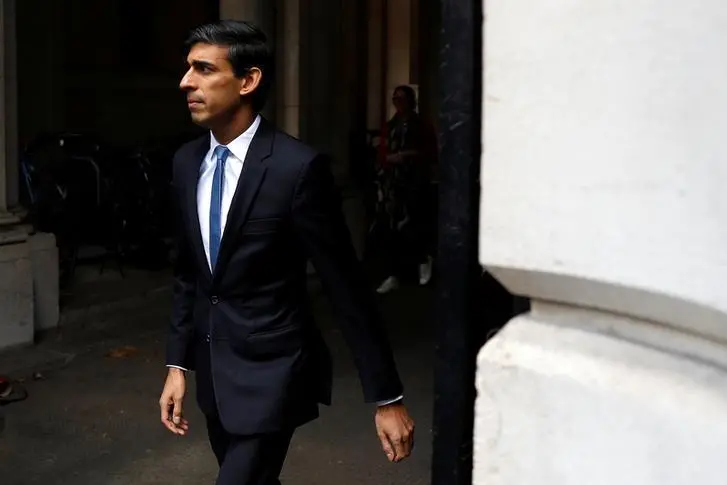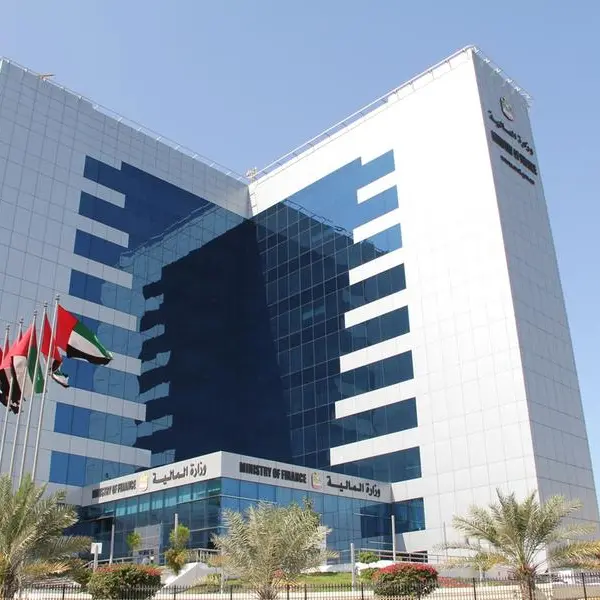PHOTO
LONDON- British finance minister Rishi Sunak promised 30 billion pounds ($37.7 billion) to head off an unemployment crisis by paying companies to bring back furloughed workers and cutting taxes for hospitality firms and for homebuyers.
Sunak, who was already on course to take state borrowing to World War Two levels with his 133 billion pounds of initial coronavirus emergency measures, said he would return the public finances to a sustainable footing over the medium term.
But the former Goldman Sachs analyst promised to remain "unencumbered by dogma" and press on with using the power of the state to shore up the economy, which has forced his Conservative Party to suspend its traditional pro-market instincts.
"I want every person in this House and in the country to know that I will never accept unemployment as an unavoidable outcome," Sunak told parliament on Wednesday.
"We haven't done everything we have so far just to step back now and say, 'job done'. In truth, the job has only just begun."
Britain's economy shrank by 25% over March and April and recovery for its worst-hit, jobs-heavy sectors remains a long way off.
Under the bonus plan, employers will be paid 1,000 pounds ($1,256) after the furlough scheme expires at the end of October for every worker who returns to their job, provided they are kept on through to the end of January.
With more than 9 million jobs covered by the scheme, the cost of the bonuses could be as much as 9.4 billion pounds.
To help hospitality and tourism, which are struggling to cope with social distancing rules, he announced a cut in value-added tax to 5% from 20% for six months.
Shares in house-building, pubs and restaurant firms rose.
People eating out in August between Monday and Wednesday would receive a 50% discount of up to 10 pounds each, paid for by the government.
With close to 45,000 confirmed coronavirus-linked deaths, Britain has been hit harder by the pandemic than any other European country, leaving many people worried about returning to life as before.
Sunak's plan includes a 2 billion pound ($2.5 billion) fund to create six-month work placement jobs for unemployed 16-24 year-olds and the largest ever rise in partly government-funded apprenticeships.
Sunak said he will spend a further 3 billion pounds to improve the energy efficiency of homes and public buildings, which would support more than 100,000 jobs.
The 30 billion-pound cost of the plan includes around 5.6 billion pounds in accelerated infrastructure spending announced last week by Prime Minister Boris Johnson.
Some employers had urged Sunak to go further by cutting the social security contributions they must pay for their workers.
RECOVERY BOOST
Economists said the plan was unlikely to accelerate Britain's recovery from the crisis.
"Despite the chancellor's efforts, we still expect GDP to be about 5% below its pre-Covid level by the end of this year," Samuel Tombs, an economist with Pantheon Macroeconomics, said.
In a bid to breathe life into the housing market and the broader economy, Sunak raised the lower threshold for a tax on property purchases to 500,000 pounds, four times its current level, with immediate effect until March 31.
Britain's economy looks set to shrink by more than 10% this year, the International Monetary Fund predicted in June, worse than the United States and Germany although a less severe contraction than in some other European countries.
Sunak also has to contend with a possible shock linked to Britain's departure from the European Union, as London and Brussels continue to wrangle over a deal to formalise their post-Brexit trade relationship from the start of next year.
<(Writing by William Schomberg; Editing by Catherine Evans) ((william.schomberg@thomsonreuters.com; +44 207 542 7778; Reuters Messaging: william.schomberg.reuters.com@reuters.net))





















